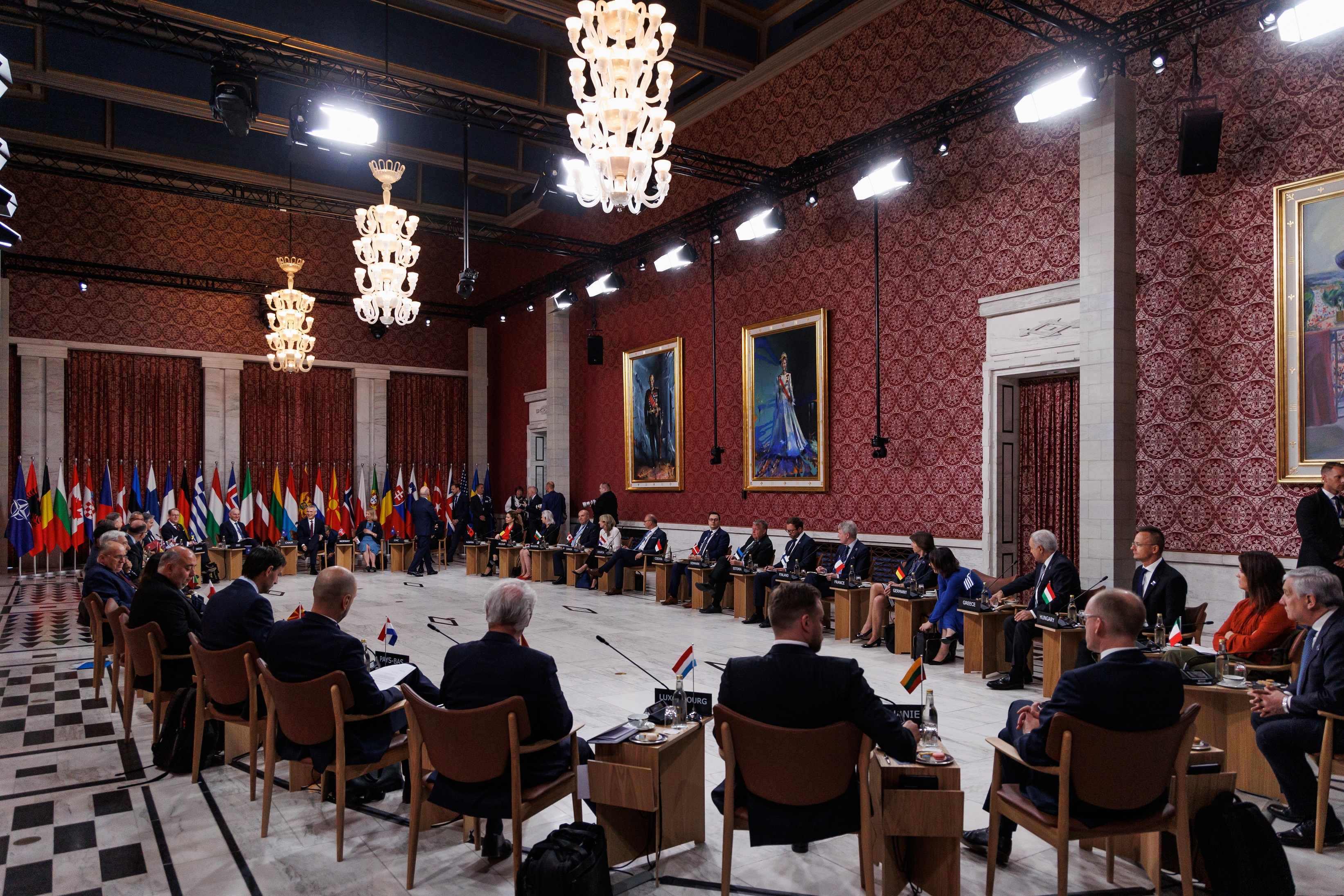Péter Szijjártó, Minister of Foreign Affairs and Trade, said in Oslo on Thursday that the NATO membership of a country at war cannot be on the agenda at the defense alliance’s next summit in Vilnius, adding that NATO must not become party to the war in Ukraine, lest it risks a third world war.
Minister Szijjártó told a press conference after an informal meeting with his NATO counterparts that the negative effects of the war in neighboring Ukraine affected Hungary more strongly. The Hungarian government therefore wants peace as soon as possible, however, this stance remains in the minority in the transatlantic region, Minister Szijjártó said, according to a ministry statement. The minister noted NATO’s declaration last year that it was not party to the conflict in Ukraine and that it would do everything possible to avoid a direct confrontation with Russia. “Adherence to this decision is critical for us … this has to remain the basis,” Minister Szijjártó said. Concerning Ukraine’s potential NATO membership, Minister Szijjártó said: “We have to be clear, the accession of a country at war cannot be on the agenda.” The minister said he believed there was an agreement on this in NATO circles, “but clearly, certain countries don’t dare or want to express it this firmly and directly in public”. He said that while it would be possible to give Ukraine the impression that it would be given a timetable for its accession at the summit, this would not be fair. “We shouldn’t foster illusions that obviously won’t come true,” he said.
Minister Szijjártó also spoke out against the Ukrainian army receiving any combat training from NATO, warning that this risked expanding the conflict and contradicting the alliance’s earlier decisions. Meanwhile, Szijjártó said that the annual 500 million euros of development aid NATO Secretary General Jens Stoltenberg proposed member states should allocate to Ukraine could only be done on a voluntary basis. He also said it was important that the NATO-Ukraine committee be convened in a way that allows for requiring the country to respect the rights of national minorities. Minister Szijjártó said that though Hungary was under strong pressure to ratify Sweden’s NATO accession, the government had made it clear that the decision on when this happens would be determined by parliament. “We refuse to accept any pressure,” the minister said. “Hungary’s parliament will make a sovereign decision on the ratification, which the government will of course support.”
Meanwhile, Minister Szijjártó said several of his NATO counterparts had spoken highly of how Hungarian peacekeeping troops had stood their ground in Kosovo, which he said Hungary could be proud of. He said that in addition to threats from the East, NATO should also devote attention to challenges from the South, such as the increased threat of terrorism from the Middle East and Africa, which he warned could lead to more mass migration waves making their way to Europe. “We, therefore, consider it very important to help develop the defense capacities of the African, Western Balkan and Caucasian countries,” he said. Szijjártó said because NATO members had not been repaid the money that financed the Afghan army even despite the alliance’s withdrawal from the country, the Hungarian government has reallocated 320 million forints (EUR 863,000) of it towards the development of the defense capabilities of Bosnia and Herzegovina, along with 120 million forints each to Georgia and Moldova and 40 million each to boost the capabilities of Jordan, Mauritania and Tunisia. He also said that Hungary continued to oppose arms deliveries to Ukraine, adding that several African countries were concerned that those weapons could end up in the continent’s unstable regions.
(About Hungary)

